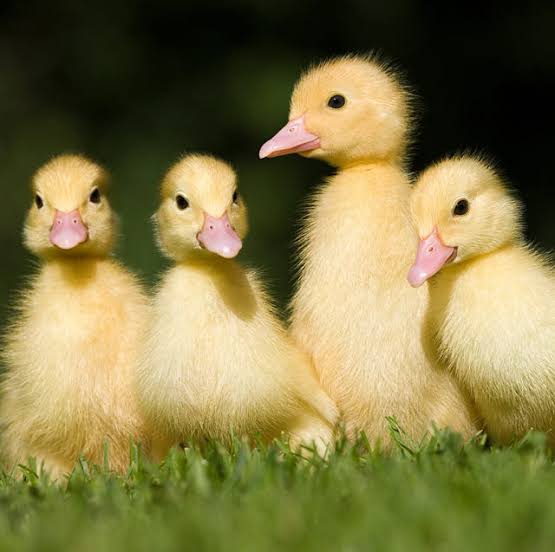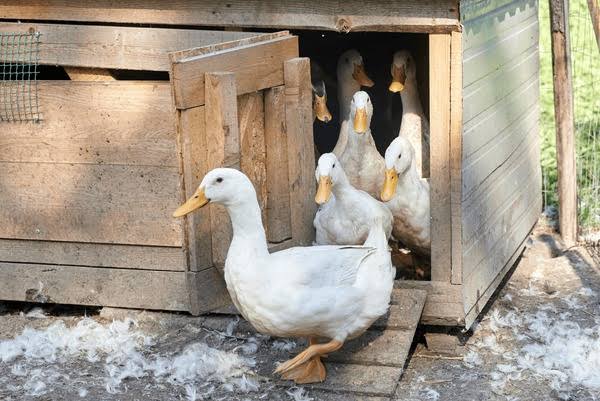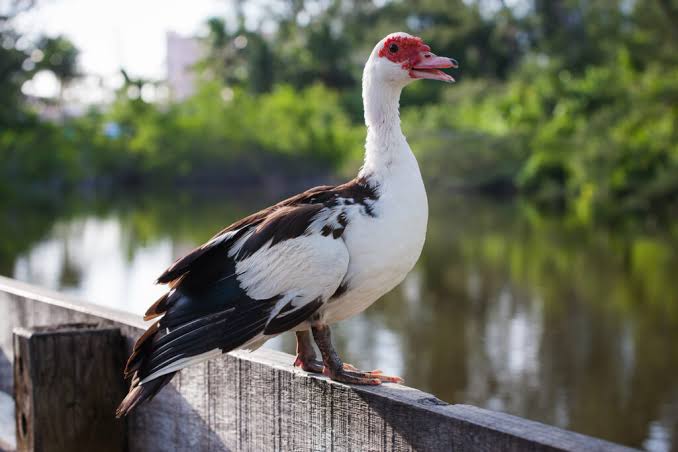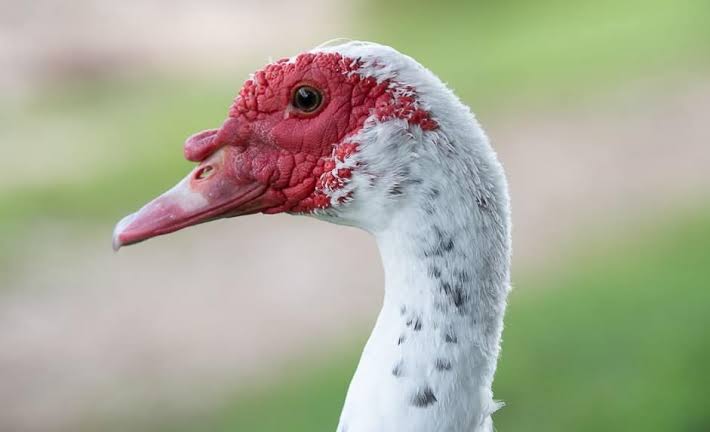Hey Hivers 💯📌
Ducks are a great addition to any farm or backyard. They provide eggs, meat, pest control, and even companionship. Compared to chickens, they are hardier, more resistant to disease, and can thrive in various climates. Whether you want them for food or just as pets, this guide will walk you through everything you need to know to raise and manage ducks successfully.

1. Why Raise Ducks?
Ducks are easy to care for and offer many benefits, including:
Great Egg Layers – Some breeds, like Khaki Campbells, can lay up to 300 eggs a year.
Hardy in All Weather – Ducks handle cold and wet conditions better than chickens.
Excellent for Pest Control – They eat bugs, snails, and weeds, helping to keep your garden healthy.
Low Maintenance – Ducks don’t need fancy coops or perches; they’re happy on the ground.
Friendly and Fun – They have great personalities and are enjoyable to watch.
- Choosing the Right Duck Breed
The breed you choose depends on your goal:
For Eggs: Khaki Campbell, Indian Runner, Welsh Harlequin
For Meat: Pekin, Muscovy, Rouen
For Dual Purpose (Eggs & Meat): Buff Orpington, Swedish
For Pets: Call Ducks, Muscovy (quiet and friendly)
If you want ducks mainly for eggs, go for high-producing breeds like Khaki Campbells. For meat, Pekins grow fast and are popular for their tender meat.
- Setting Up a Home for Ducks
Ducks don’t need much to be happy, but they do need a safe and comfortable environment.
3.1 Housing
A simple shelter, like a small coop or shed, works well.
Ducks don’t roost like chickens, so give them a dry floor with straw or shavings.
Each duck needs about 4-6 square feet of indoor space.
Ensure the shelter is predator-proof, as ducks are vulnerable to foxes, raccoons, and hawks.

3.2 Fencing
A secure, fenced area keeps them safe from predators.
Ducks don’t fly much, but lightweight breeds may need a covered run.
3.3 Water and Swimming
While ducks love water, they don’t need a big pond—just a kiddie pool or a large tub will do.
Change the water regularly to keep it clean.
- Feeding and Nutrition
Ducks need a balanced diet to stay healthy.
4.1 What to Feed Ducks
Starter Feed: Ducklings need a 20% protein feed for the first few weeks.
Grower Feed: Reduce protein to 15-16% after 3-4 weeks.
Layer Feed: If keeping ducks for eggs, switch to a calcium-rich feed around 20 weeks old.
Waterfowl Pellets or Poultry Feed: Ducks can eat regular poultry feed, but they need added niacin (brewer’s yeast helps).
Treats: Mealworms, veggies, fruits (avoid citrus), and grains like oats and rice.
4.2 What NOT to Feed Ducks
No processed food, salty snacks, or moldy food.
Avoid avocados, raw potatoes, onions, and chocolate—these can be toxic.
4.3 Water Access
Ducks drink a lot of water and need fresh water at all times. They also need it to help swallow their food.

- Health and Common Problems
Ducks are hardy, but they can still face some health issues.
5.1 Common Health Problems
Niacin Deficiency: Causes leg issues; prevent it by adding brewer’s yeast to their feed.
Bumblefoot: A foot infection from rough surfaces; treat with Epsom salt soaks and antibiotics if severe.
Worms and Parasites: Deworming occasionally can help.
Wet Feather: Happens when ducks lose their waterproofing; ensure they have access to clean water.
5.2 Keeping Ducks Healthy
Provide clean water and fresh bedding.
Protect them from predators.
Watch for signs of illness (lethargy, limping, loss of appetite).
Keep their area dry to prevent infections.
- Collecting and Using Duck Eggs
Duck eggs are larger and richer than chicken eggs.
6.1 Collecting Eggs
Ducks often lay in the early morning, so check nests daily.
Unlike chickens, they may not always lay in the same spot.
6.2 Using Duck Eggs
Great for baking due to higher protein content.
Can be eaten like chicken eggs—scrambled, boiled, or fried.
Store them in the fridge for up to 6 weeks.
- Raising Ducklings
If you hatch ducklings or buy young ones, they need extra care.
7.1 Brooder Setup
Keep them warm with a heat lamp (start at 90°F and reduce weekly).
Use non-slip bedding (no newspaper—it’s too slippery).
Provide a shallow dish of water (not too deep, as they can drown easily).
7.2 Transitioning Outside
At 4-6 weeks, they can go outside during the day.
By 8-10 weeks, they can stay outside full-time.
8. Managing Adult Ducks
Once ducks are fully grown, their care is simple.
Feed and water them daily.
Let them roam if possible—they love foraging.
Give them access to a clean water source.
Provide shelter at night for safety.
- Breeding Ducks
If you want to hatch ducklings, you’ll need a male (drake) and some hens.
9.1 Natural Breeding
Ducks usually mate in water.
A ratio of one drake to 3-5 hens works best.
Female ducks will lay fertilized eggs, but they don’t always sit on them.
9.2 Hatching Ducklings
If a mother duck isn’t broody, use an incubator (temperature: 99.5°F, humidity: 55-65%).
Eggs hatch in about 28 days (Muscovy ducks take 35 days).
10. Common Challenges and How to Solve Them
10.1 Ducks Making a Mess
Ducks love mud and water—keeping waterers elevated can help reduce splashing.
10.2 Predators
Secure fencing and lock ducks up at night.
10.3 Loud Ducks
Some breeds (like Pekins) are noisier than others. If noise is a concern, Muscovies are quiet.

Conclusion
Raising ducks is rewarding and relatively easy. Whether for eggs, meat, or companionship, ducks bring joy and practical benefits to any home. By providing them with proper food, water, shelter, and care, you’ll have happy, healthy ducks for years to come.
If you’re new to raising ducks, start small and learn as you go. Soon, you’ll enjoy the sight of your ducks waddling around, the sound of their happy quacks, and the fresh eggs they provide.
Thanks for reading.

@tipu curate
Upvoted 👌 (Mana: 28/48) Liquid rewards.
Interesting to know more about ducks. I was unaware ducks could produce eggs comparable to good chickens.
Thanks!